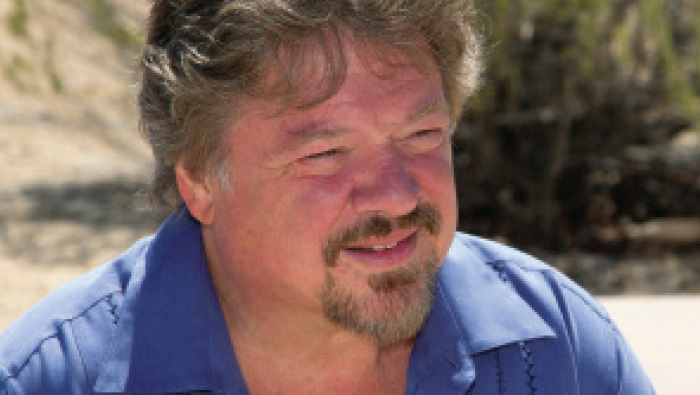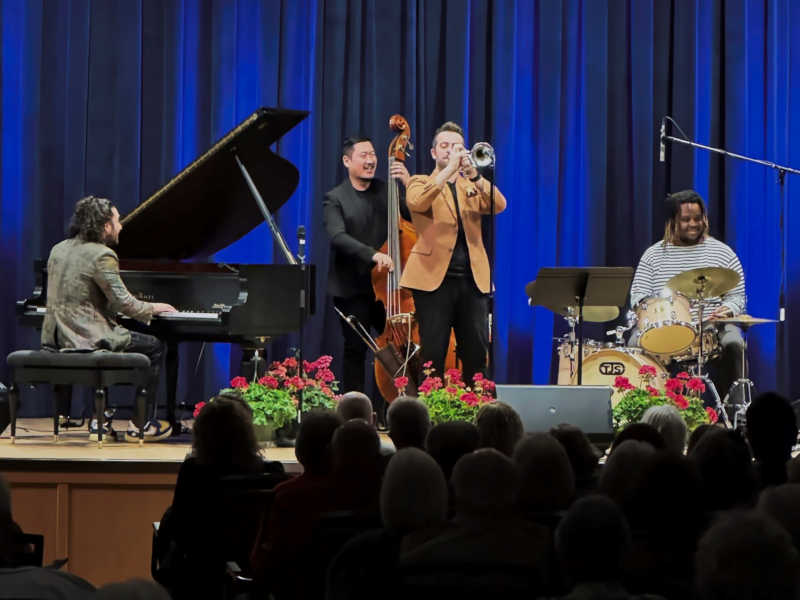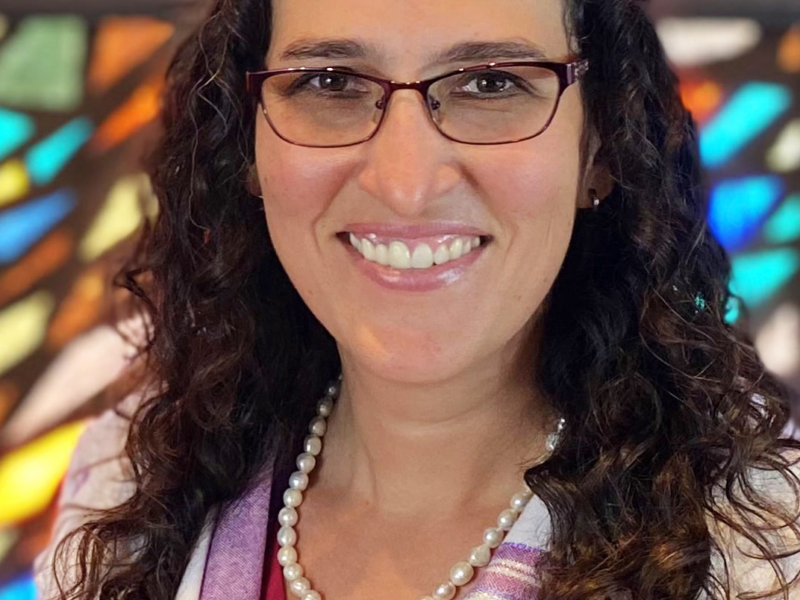Concert promoter and collector extraordinaire Danny Zelisko has been uniting performers, venues and audiences in Arizona since 1974. His penchant for ensuring a successful, fun event for all involved landed him in the Arizona Music Hall of Fame in 2004.
His celebrity connections sound like a who’s who of the music world. The thousands of entertainers he has worked with over the past four decades include household names such as Paul McCartney, Ringo Starr, The Eagles, Bette Midler, Arlo Guthrie, Roger Waters (of the original Pink Floyd), Tina Turner, Tim McGraw, The Rolling Stones, Eric Clapton, Cher, Barbra Streisand and James Brown. He’s booked the rock shows at the Arizona State Fair for 30 years, starting with a performance by The Police. He’s friends with actor George Lopez; Jewish comedian Lewis Black; Frank Zappa’s son, rock guitarist Dweezil Zappa; Stephen Stills, of Crosby Stills and Nash; and a host of other famous folk.
“It sounds like name dropping, but it all happens,” says Danny. “I’m friends with talented people. They are somebody to call and ask for advice or offer advice. For the most part they are all genuine, real people; they care about you.”
As impressive as that roster of entertainers sounds, Danny’s Jewish friends, some of whom are also part of his showbiz world, are just as important to him. Starting with his discovery he was Jewish thanks to his high school pals, Jewish friends have played important roles during vital moments throughout his life – including educating him on the art of concert promotion, financing his first production company, introducing him to his wife, sharing Passover seders and authentic “Jewish meals,” and supporting him in his successful battle against cancer.
Growing up on the north side of Chicago, Danny says he didn’t realize he was Jewish until he was in high school and his Jewish friends told him that if his grandmother was Jewish, his mother was Jewish and so was he.
Danny says he promptly went home and told his Catholic dad he wasn’t going to church anymore, he was going to synagogue instead.
“It turned into a good bit around the house,” says Danny. “Dad didn’t know what to make of it.”
Though Danny did stop attending church, he didn’t make it to synagogue.
Years later Danny asked his then elderly grandmother why she hadn’t passed on her rich heritage to her daughter and grandson.
“She said it was ‘not what we did then,’ ” says Danny. “I’ve learned that with the anti-Semitism in the ’20s and ’30s, many people didn’t wear it on their sleeve. … It’s unfortunate. I don’t do anything religious, but I’m proud of being Jewish. It is one of the things that make me who I am.”
After graduating from high school, Danny went to California, where he learned the concert promotion business at the feet of Bill Graham. Born Wulfgang Grajonca, in 1941 at age 10 he became one of about 1,400 children rescued from Germany and Nazi-occupied Europe who were sent directly to America. After changing his name to sound more American, Bill grew up and “created the concert promotion business” in the 1960s, says Danny.
“I met him in 1972 and over 15 years we developed a relationship such that he would trust me with his biggest band – The Grateful Dead,” says Danny, who promoted the band’s August 1987 Phoenix concert, which drew 17,000 people.
Their friendship started when Danny moved to California after high school graduation. He turned up at an Allman Brothers concert Bill was promoting. On the advice of the show’s road manager, the 17-year-old helped out and started to unpack equipment.
“Bill Graham picked me up by the shirt and said, ‘You’ve got chutzpah kid,’ ” recalls Danny. “I followed him around the rest of the night.”
The two remained close friends until Bill’s death in a helicopter crash at age 60 in 1991. Now Danny sits on the board of the Bill Graham Foundation, a charity that provides grants for music, the arts and education, as well as social work, environmental protection, and spiritual and compassionate projects. Danny also donated the proceeds from an auction of some of his very extensive music and sports memorabilia collection to the foundation. This spring Danny attended the opening of the Skirball Cultural Center exhibit “Bill Graham and the Rock & Roll Revolution.”
“Bill was a tough man, but he loved me and I loved him,” says Danny. In acknowledgement of that longstanding love, Danny sports part of Bill’s birth name on his license plate.
After two years of learning the ropes from Bill, Danny wanted to start his own promotions business and picked Arizona because he figured it had less competition than California or Chicago. He turned to the father of one of his Jewish high school buddies to seek funding. Larry Kopald, son of Buddy and Ruth Kopald, and Danny went to many concerts in Buddy’s station wagon emblazoned with a picture of a bottle of Dad’s Root Beer. Dad’s Root Beer was started by Ruth’s father Louis Belman, who left Russia just before the Russian Revolution and moved to Chicago.
Danny says Buddy told him he only invests in people who invest in themselves, so Danny persuaded his mom and dad, Lorraine and John, to invest in his career, too.
“My dad put in some money and Buddy put in some money,” says Danny. Those funds enabled him to put on his first shows in Arizona in June 1974: Jazz-fusion artists Mahavishnu Orchestra at the Tucson Music Hall and Herbie Hancock and the Headhunters in Phoenix.
“By the late ’70s and ’80s, I’d become a big concert promoter,” says Danny. Now, “when people think of Phoenix, they think of me. It’s amazing how networking works.”
“My brother Jimmy was writing for the Illinois Entertainer in the ’70s, and introduced me to two more important Jewish friends, Fred Ordower and Arny Granat, who respectively ran and owned Jam Productions in Chicago,” says Danny. Both men helped Danny as his career progressed and helped him grow his company, Evening Star Productions.
At the same time he also became good friends with talent manager Shep Gordon, the subject of the 2013 documentary “Supermensch.” Danny not only co-owns a home with Shep in Hawaii, he also says Shep is “like a brother.” He’s met many people Shep manages, including Alice Cooper.
“I love Alice Cooper and Shep; they are like family,” says Danny.
His friendship with Shep also expanded Danny’s family. Shep introduced him to his employees, including Melanie Wicker.
“I was doing (promotion for) the Eagles and Bette Midler the last weekend of the millennium,” Danny says. “Melanie introduced me to her sister Leslie.” Leslie and Danny married five months later. Arny served as Danny’s best man.
The new millennium brought many other changes to Danny’s life.
In 2000 SFX began buying many of the country’s biggest promoters, including Bill Graham Presents. In 2001 Danny’s Evening Star Productions also joined SFX and Danny became president of the Southwest office of SFX.
More changes were in store in 2003-4. SFX was sold to Clear Channel. Danny was inducted into the Arizona Music Hall of Fame. And he played perhaps the best golf game of his life. Unfortunately, that wonderful golf game was caused by a pain that slowed his normally hurried swing.
“I was golfing at Pebble Beach. The pain slowed my golf swing and made me a better golfer. When I swung it really hurt. I didn’t want to know what was wrong because I went 2 under (par) on two holes,” he jokes.
When he did go to the doctor a month later, he learned he had colon cancer.
Danny went to the Mayo Clinic, where the tumor was removed. On his 49th birthday, he started chemotherapy, which he says was worse than the surgery.
“But the alternative was dying, and who wants to die when you are 49?” he says. “Since then it’s been a wild ride. … I made sure every month I went somewhere special and had fun. … I’ve done thousands of shows since then.”
He hopes hearing his experience encourages other people to listen to their bodies. “Get checked if you don’t feel normal,” he urges. “So many of my friends ignored pain and they’ve died.”
The travel bug Danny nurtured while recovering from cancer has lived on. He spends a week or so in Hawaii four or five times a year.
Another place Danny would like to visit is Israel, preferably with someone who knows the country. He has many friends who have told him he needs to visit.
“The way my friends say it, is like I would say ‘you’ve got to hear this band,’ about The Beatles,” he explains of his desire to visit. “I’m not even close to well-read about the country, but I am enamored with the persistence and positive attitude of the people.”
Travel seems to run in the family. His daughter, Danielle, 27, is an avid traveler.
“My daughter quit her job (as a social worker in Illinois) to traipse around Asia,” says Danny. “Last year she went to the Ukraine where my grandparents are from. She didn’t find any relatives, but she said she saw a lot of people who looked like our family.”
It’s clear that for Danny life has continued and so has his career as a promoter.
After Clear Channel spun the entertainment division and all of its promoters and venues into what is now Live Nation in 2006, Danny served as president and then chair of Live Nation Southwest. In 2011 he left to once again become an independent promoter operating as Danny Zelisko Presents. Since then he has brought big-name acts to Phoenix, Las Vegas and Albuquerque.
His upcoming fall shows (see box) include a Sept. 19 performance by Lewis Black, who Danny has known since the 1990s.
“He’s fabulous,” says Danny. “Lewis is a really special guy. He’s super intelligent and super funny and very excitable.”
He was also one of the first people to call when he heard Danny had stage 3 colon cancer. “He’s a real mensch,” says Danny.
Looking back at life, Danny says, “I’m really happy I came along when I did. I got to do all this incredible stuff. … The ’50s was a great time to come around. Life revolved around music.”
The music that came out of the 1960s, especially the songs of The Beatles, has timeless appeal.
“It was a great decade. All the groups that came out of that decade set the musical agenda for all of us. Everybody still watches those bands.”
Danny laments that changing trends in the music world – increasingly homogenized radio stations, record companies that barely exist, groups becoming famous briefly on YouTube – have created an environment where new bands don’t have the longevity and impact of those from earlier decades.
“A lot of the great bands are still around, but we have to replace them; we need more bands coming up the pike,” says Danny. “Fortunately we are still here and can share what we felt and heard and continue the legacy of these artists … to inspire kids to create music people like.”
In addition to inspiring and entertaining today’s audiences, Danny also hopes to share his extensive music and sports memorabilia collection with future generations. He’d like to either create an exhibit space or find a museum that might be interested the posters, guitars, pictures, T‑shirts, personal letters and other items he has collected that provide a window to musical and sports happenings of the past half century.
His collection includes letters he has received from baseball players since he was a kid.
“My brother Jimmy had heart disease – he died when he was 30,” says Danny. “He got me into writing letters to ball players. I met Ernie Banks when he played for the Cubs. We’ve been friends for 50 years.”
When a statue of Ernie was dedicated at Wrigley Field, he invited Danny to join him at the dedication. “I sat with him and Hank Aaron.”
“I’m a huge Sandy Koufax fan,” adds Danny, noting he has plenty of memorabilia, like signed balls, photos and a jersey that hangs in Alice Cooper’stown in Phoenix, to support that claim. “One of the first exposures I got to anything Jewish was when he wouldn’t pitch on Yom Kippur in the World Series.”
For now his collection is in a secure storage area. “I love the last half century. I have a ‘Danny Hall of Fame’ that is incredible,” he says. “I’d love to put it up.”
During more than four decades in the music world, Danny has learned the Jewish community and the entertainment world have a lot in common in terms of a feeling of kinship. “There are so many Jewish people in the business. It’s a close-knit fraternity,” says Danny.





